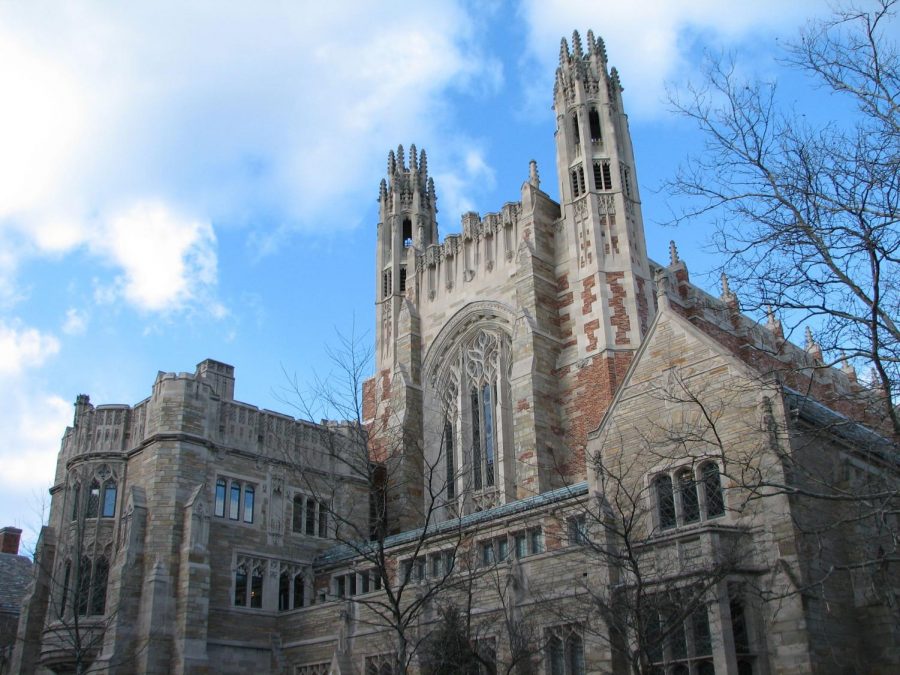What is a “Good” College?
Do Loyola students believe the challenge of admittance into “elite” universities is worth it?
Wikimedia Commons – Creative Commons License
Outside of Yale Law School in New Haven, Connecticut
December 1, 2018
As the month of November winds down, and the first semester of the 2018-19 school year enters its final stretch, many Loyola seniors have finished submitting college applications and will have a plethora of universities from all over the country to choose from as they decide where and how to spend the next four years of their lives. American universities are some of the best places for learning in the entire world, drawing students from all over the world, yet a very select few have separated themselves from the rest. Many know them as “Ivy League” schools, derived from the name of the athletic conference these eight east coast schools compete in.
These schools are known for their extremely competitive admissions standards, and in some cases, very costly tuition. It is no secret that universities such as Harvard, Yale, Columbia, and Brown only select the cream of the crop from high schools all over the country.
In fact, no Ivy League school has an acceptance rate higher than 11%. The highest acceptance rate among the Ivys is Cornell, which sits just above 10% for the Class of 2022.
According to universitylanguage.com, no Ivy League University had an average ACT score below 30 for incoming freshman. The extremely competitive standards for admission into the world’s top universities begs the questions – Is the stress and pressure to “make the cut” really worth it? And, what does a good college mean?
“I think a good college depends on who you’re talking about. What interests does a person have, what do they want to do, what kind of an environment do they want? All these questions play into any student’s final decision,” says junior Loyola student Ryan Dombrowski.
Other students have different perspectives, such as another Loyola junior, “I think I’ll go to [University of Illinois] because it’s cheaper in-state, although I’d like to go to Harvard – they give you a lot of money – I just can’t get in.”
For many students, the challenges of seemingly never-ending tuition fees associated with college are an ever-present challenge, and will make their decision almost purely based on financial aid options. In any case, attending college is a lot to consider, and asking how “good” a college is, is defined by many factors, not simply an acceptance rate or average ACT score. The only person who can make an informed decision on which college is best for them is the student.

